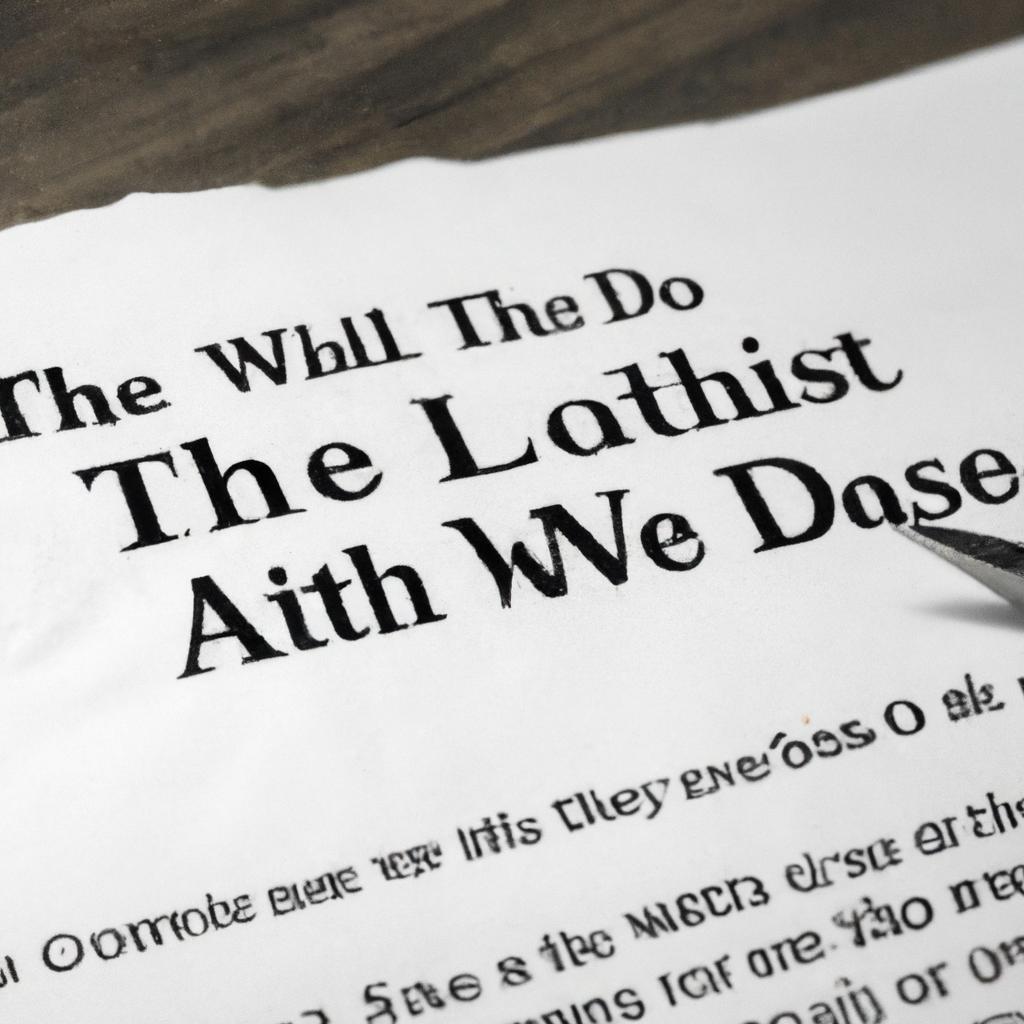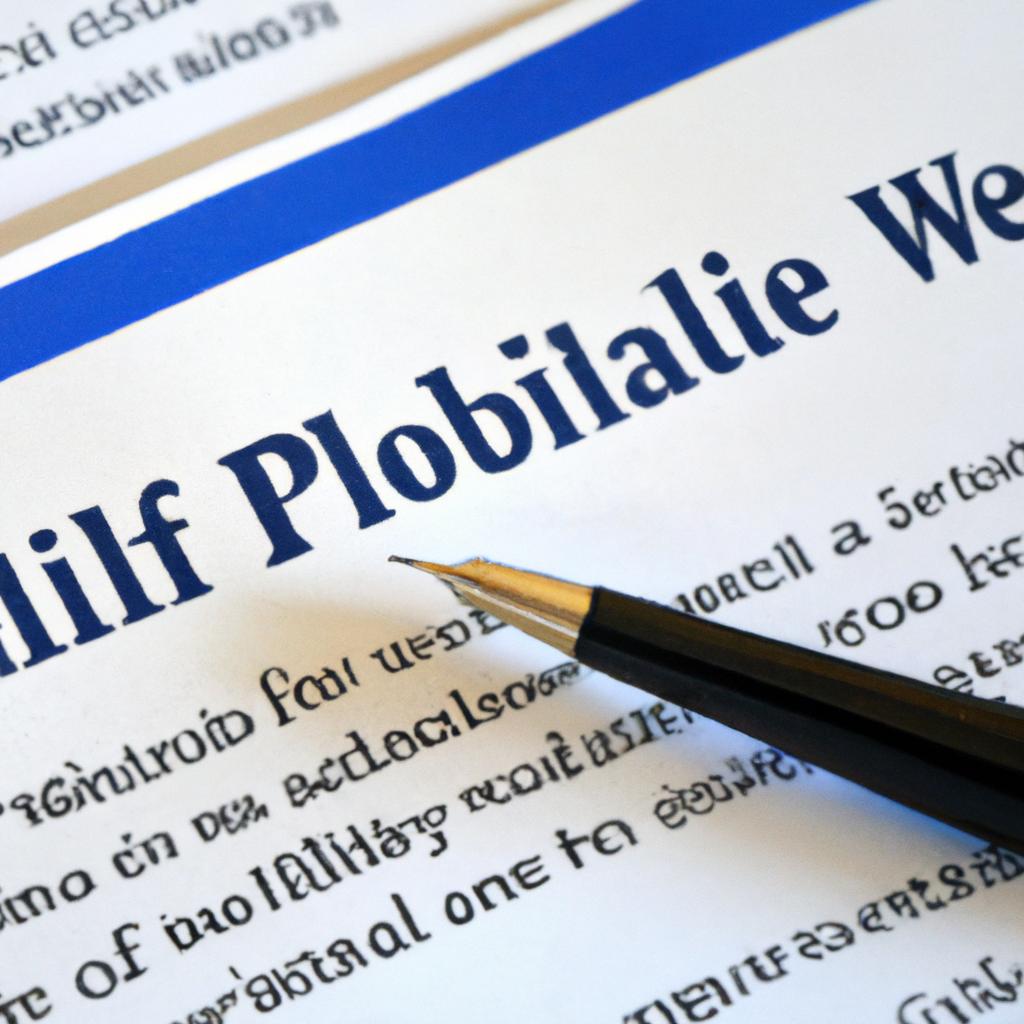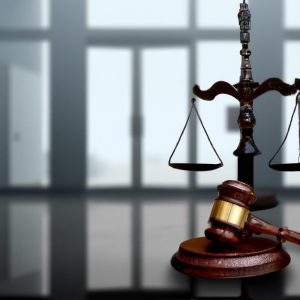When the final curtain falls and one’s earthly presence fades into memory, the intricate dance of legal matters begins. In the absence of a meticulously crafted will, the fate of one’s estate becomes shrouded in uncertainty. At Morgan Legal Group in the heart of New York City, we navigate the complex waters of probate, estate planning, and trust law with precision and clarity. Join us as we unravel the enigmatic web of what occurs when an individual departs this world without a will to guide their legacy.
Consequences of Dying Without a Will in New York State
When someone passes away without a will in New York State, their estate is considered intestate. This means that the distribution of their assets will be determined by the laws of the state, rather than their own wishes. Without a will, the court will appoint an administrator to handle the estate, who may not be someone the deceased would have chosen. This can lead to delays in the distribution of assets and added expenses for the estate.
Furthermore, without a will, the deceased has no control over who inherits their estate. In New York State, if someone dies without a will and is survived by a spouse and children, the estate will be divided between them in specific proportions. This may not align with the deceased’s intentions, and can lead to unnecessary disputes among family members. By creating a will, individuals can ensure that their assets are distributed according to their wishes and avoid the complications of intestacy.

Important Legal Considerations for Intestate Succession
When someone passes away without a will, their estate is subject to the laws of intestate succession. This means that the state will determine how the deceased person’s assets are distributed among their heirs. It is crucial to understand the important legal considerations that come into play in these situations:
- State Laws: Each state has its own laws governing intestate succession, which dictate how assets are distributed among family members. It’s essential to be aware of these laws to ensure that the estate is distributed correctly.
- Heirs: In the absence of a will, the deceased person’s assets will typically be passed down to their closest living relatives, such as a spouse, children, parents, or siblings. Knowing who qualifies as an heir under state law is crucial in determining how the estate will be distributed.

Complexities and Challenges of Probate Without a Will
When someone passes away without a will, it can create a myriad of complexities and challenges for their loved ones left behind. Without a clear document outlining their final wishes, the process of probate can become lengthy, costly, and emotionally draining. In the absence of a will, the state’s laws will dictate how the deceased person’s assets are distributed, which may not align with what the individual would have wanted.
One of the main issues that arises in probate without a will is the lack of clarity regarding who will inherit the deceased person’s assets. This can lead to disputes among family members, prolonged court proceedings, and potential strain on relationships. Additionally, without a will, the probate process can take significantly longer, as the court will need to determine the rightful heirs and how the assets should be distributed. It is essential for individuals to consult with an experienced estate planning attorney to avoid these complications and ensure their final wishes are carried out smoothly.

Recommendations for Ensuring Your Estate is Handled Properly Without a Will
When someone passes away without a will, it can create unnecessary complications for their loved ones. To ensure that your estate is handled properly in the absence of a will, it is crucial to consider the following recommendations:
- Consult with an Estate Planning Attorney: Seeking advice from a knowledgeable attorney can help navigate the legal complexities of intestate succession laws.
- Organize Your Financial and Legal Documents: Keeping all important documents in one place can expedite the probate process and ensure that your assets are distributed according to state law.
- Communicate Your Wishes: While a will is the most effective way to outline your wishes, discussing your intentions with family members can provide clarity and prevent disputes.
In the event that you pass away without a will, the distribution of your assets will be determined by state law. Without a clear directive, the court will appoint an executor to oversee the probate process and distribute your estate according to intestacy laws. It is essential to take proactive steps to protect your assets and ensure that your loved ones are provided for after your passing.
Q&A
Q: What happens when someone dies with no will?
A: When someone dies without a will, their estate is distributed according to the laws of intestacy.
Q: What is intestacy?
A: Intestacy is the legal term for the situation when someone dies without a will. The laws of intestacy determine how the deceased person’s estate will be distributed among their heirs.
Q: Who are considered heirs in the absence of a will?
A: In the absence of a will, the deceased person’s estate will typically be distributed to their closest living relatives, such as spouses, children, parents, and siblings.
Q: What happens if someone dies without any living relatives?
A: If someone dies without any living relatives, their estate may escheat to the state, meaning that the government will take possession of their property.
Q: Can disputes arise when someone dies without a will?
A: Disputes can arise when someone dies without a will, particularly if there are disagreements among potential heirs about how the estate should be distributed.
Q: How can someone prevent complications from arising after their death?
A: To prevent complications from arising after their death, individuals should create a will outlining their wishes for the distribution of their estate. It is also advisable to review and update the will regularly to reflect any changes in circumstances.
Q: What are the potential consequences of dying without a will?
A: Dying without a will can lead to delays in the distribution of the deceased person’s estate, as well as disputes among potential heirs. It can also result in the estate being distributed in a way that does not align with the deceased person’s wishes.
Future Outlook
In conclusion, the impact of dying without a will can be significant and far-reaching. From the confusion and disagreement among surviving family members to the potential loss of assets and financial instability, the consequences of not having a will in place can be daunting. It is crucial for everyone to take the necessary steps to create a will and ensure that their wishes are properly documented and followed after their passing. By planning ahead and seeking legal guidance, individuals can provide peace of mind for themselves and their loved ones during a difficult time. Remember, it’s never too early to start planning for the future.






